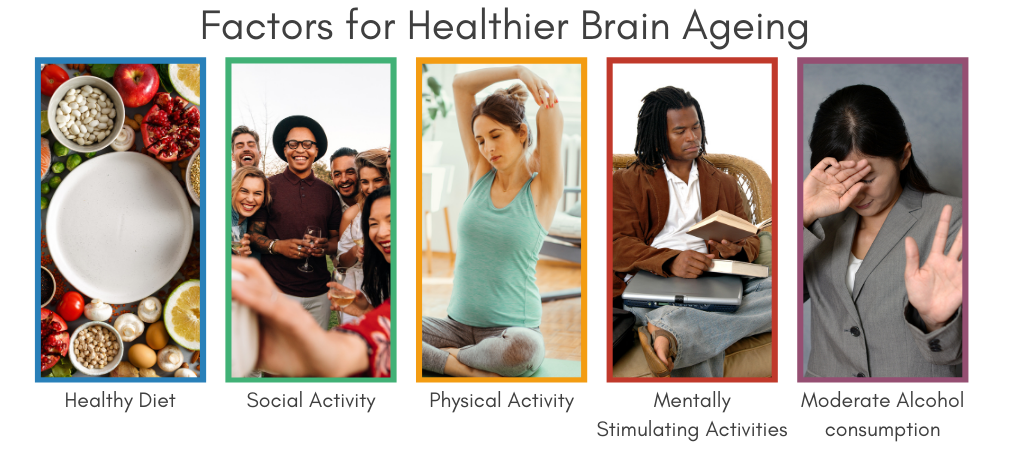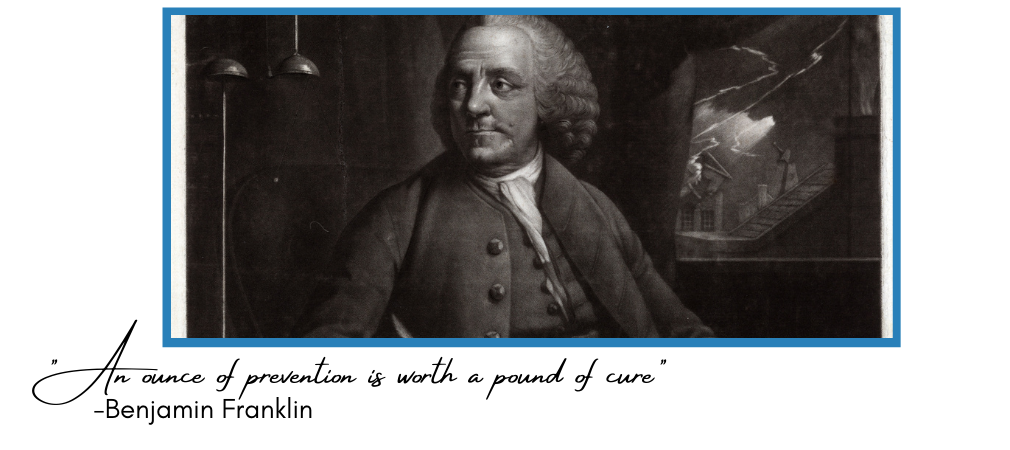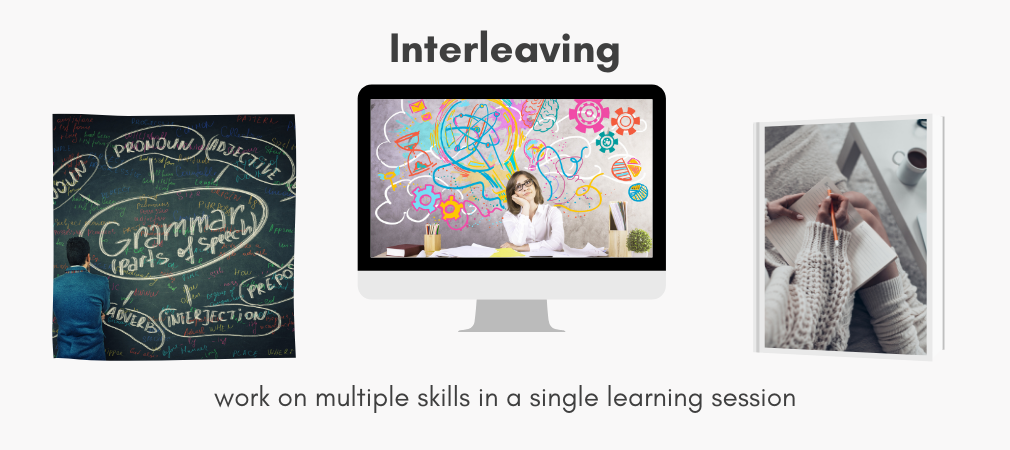5 Important Ways to Help Prevent Cognitive
Decline As You Age
As we age, the thought of losing your cognitive abilities to any degree is one of the most terrifying thoughts for many people.
Fortunately, recent research gives us some pretty substantial clues about the influencing factors we need to take care of if we hope to prevent cognitive decline.
Any guesses on the top 5?
Chase et al. (2017) examined 2315 people over the age of 65 and found the following five factors were linked to healthier brain aging.
- Healthy diet
- Social activity
- Physical activity
- Mentally stimulating activity
- Moderate alcohol consumption

Based on this study’s results, researchers found that people with a healthier lifestyle performed better on tests of mental ability.
They also concluded that their performance could be attributed to their superior “cognitive reserve,” which comes from engaging in a mentally stimulating activity.
And if you are curious about why “cognitive reserve” is essential, the researchers found that this reserve creates a buffer in the brain, making it more resilient from illness and decay.
Takeaway Message
Benjamin Franklin once said, “An ounce of prevention is worth a pound of cure.” So, the time to prevent cognitive decline is now, regardless of your age.

There are five key factors listed above. I imagine that none of these findings were shocking. But knowing something, and not doing it, is just as bad, and arguably worse, than not knowing at all.
So, now is the time to prioritize these activities and find a way to weave them into your daily life, with perhaps moderate alcohol intake serving as the one item on the list you may choose to omit, especially if it has ever posed a problem in the past.
And don’t forget the importance of continually stretching your brain with mentally stimulating activities so that you can increase your cognitive reserve.
3 Quick Tips For Learning
Learning is truly one of the great joys in life. They are truly a countless number of interests in which you could spend your time and energy on, but unfortunately, there is only a finite amount of time.
So, let’s take a look at three quick tips to help enhance your learning capacity.
1. Take Omega 3 Fatty Acids
While there are many tips you can use to enhance learning, I feel this one is incredibly important.
I am a huge fan of legendary Canadian strength coach and all-around smart guy, Charles Poliquin. He has long–preached about how deficient our western diets have become in Omega 3 fatty acids.
Recent research has validated his hypothesis. Studies are showing that Omega 3 supplementation is beneficial in virtually every aspect of human functioning.
Not surprisingly, Amen et al. (2017) found that supplementing with Omega 3’s can boost memory and learning.
For anyone interested in supplementing with Omega 3 fatty acids, I would highly encourage you to discuss further with your family physician or naturopath.
2. Mix Up Your Learning
This is also known as ‘interleaving’ and it has been shown to be highly effective in research studies but rarely seems to be used in day-to-day practice.
Here’s how it works.
Essentially, when doing a single session of learning, you would work on multiple different skills instead of focusing on just one skill, as we usually do.
For instance, if you were learning English, you would tackle multiple skills such as grammar, spelling and creative writing, working on each skill for a short period of time (e.g., 15-20 minutes) instead of just focusing on one of those skills.
Rohrer et al. (2015) conducted a recent study on children’s math performance, in which half of the students were taught with the interleaving method.
All students were tested on their math skills one day later. The children who used the interleaving method did 25% better.
Impressive!
But when these same students were tested one month later, the interleaving group did 76% better!
Extremely impressive!
3. Pretend You Are Einstein
That’s not a joke.
Imagining yourself as being someone brilliant can help to unlock cognitive potential.
Banakou et al. (2018) found that people who were made to feel like Albert Einstein in a virtual reality test did better on cognitive tests.
In essence, they got smarter.
This study’s results do lend credence to the phrase, “Whether you think you can, or you think you can’t, you’re right.”
So, simply put, having a little more confidence in yourself can help you to unlock cognitive potential.
I encourage you to give it a try!
How are you doing with completing the five tasks above for healthy brain ageing?
Which one is the hardest to do consistently?
Please let me know in the comments section below.
Article by
Trevor Sullivan, MA, RP
Registered Psychotherapist
September 30, 2020


